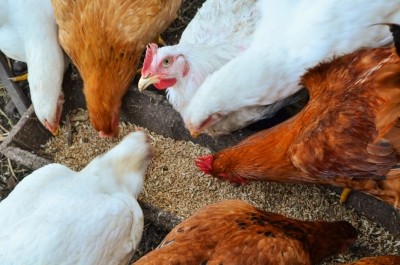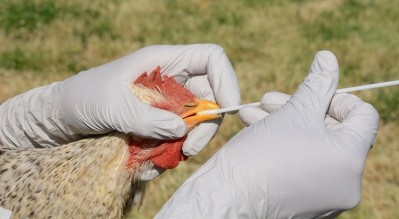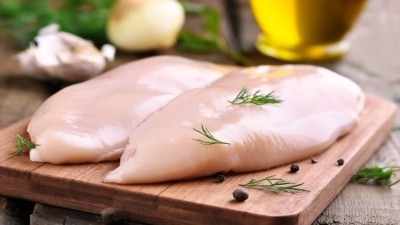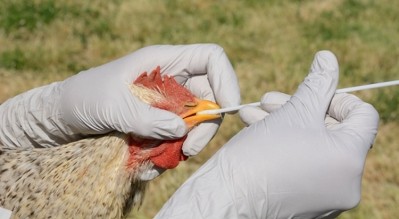What impact will bird flu’s ‘rapid spread’ have on the European poultry sector?

EFSA published an update today concluding the avian influenza (HPAI) is highly likely to move into unaffected European countries because the disease is ‘spreading rapidly’ across the continent.
Recent months have seen more than 300 cases of avian influenza reported in Belgium, Denmark, France, Germany, Ireland, the Netherlands, Sweden and the United Kingdom. The majority of the cases were in wild birds although there have been a handful of outbreaks in kept poultry.
The update follows EFSA’s warning just two months ago that the highly pathogenic disease could spread quickly in western Europe after outbreaks hit wild and domestic birds in Russia and Kazakhstan this summer. EFSA noted that this region is a popular autumn migration route for wild water birds heading to Europe for the winter.
Some national governments have already sprung into action in an attempt to contain the spread. The UK, for instance, has introduced a containment zone that required increased biosecurity efforts.
Nik Kriz, Head of EFSA’s Animal and Plant Health Unit, called for a collaborative approach to be taken across the region. “Preventing further escalation of these outbreaks will require close cooperation between animal, public, environmental and occupational health authorities – in other words, a One Health approach – across Europe,” he warned.
EFSA urged national authorities to continue surveillance of wild birds and poultry and to implement control measures to prevent human contact with infected or dead birds. Member States are also advised to enforce in their high-risk areas the risk mitigation and reinforced biosecurity measures.
Minimising industry disruption
Bird flu was first detected in China in 1996. Early waves of the highly contagious disease, which is widely spread by wild, migratory birds, caused massive economic and industry disruption.
But, in some ways, bird flu is now a risk that the poultry sector has learned to live with.
“We have good years and bad years, which can be linked to migratory birds and the strains of HPAI circulating,” Rupert Claxton, meat director at Gira Food, observed. “It seems like we should have expected 2020 to be a bad year!”
Claxton told FoodNavigator that while the spread of bird flu does pose an issue for the poultry sector, disruption is ‘far less than in the initial outbreaks’.
“For the most part intra-EU trade can continue between regions that are free, or become free, of HPAI,” the meat trade expert explained. However, he noted, there may be some disruption of trade to markets outside the European bloc. “Disruption to extra-EU exports is an issue, notably to Asia, and with a quick look it looks like the Netherlands to China might be worst affected.”
Poultry processors also have to absorb increased costs associated with the implementation of biosecurity measures. In organic and free-range flocks, for instance, significant changes are required. “For the organic or free range farms, it means shutting birds in,” Claxton observed.
This doesn’t undermine the free-from status of these farms, however. “There are now regulations that permit this for a period, without losing the right to label.”
The biggest cost impact, of course, is on producers who have to dispose of flocks that become infected. The culling of these flocks can result in supply chain disruption, Claxton said. But, in the current environment, the balance between supply and demand - already out of whack due to the enforced closure of out-of-home channels thanks to COVID lockdowns - means any supply shortage can be smoothed out.
“Disruption in the supply chain [is] likely a blip given the foodservice closures we are currently experiencing [due to COVID-19], and hence it has had little impact.”
Consumers confidence remains high
Another factor that will serve to minimise damage to the sector is the fact that consumers are now somewhat accustomed to the incidence of bird flu and don’t turn away from the category as a result.
“Consumers don’t react in the way they did with the initial outbreaks,” Claxton reflected.
Confidence is high that bird flu presents a ‘very low’ threat to human health.
According to the UN's Food and Agriculture Organization, previous international outbreaks of avian influenza - which is highly pathogenic among the bird population - have seen a 'very small' number of human illnesses or deaths, all of which have been traced back to contact with poultry or uncooked poultry products.
EFSA reinforced this message today. “No human cases have been detected in the new outbreaks so far and the risk of transmission to the general public remains very low.”
However, the European safety body did stress that the evolution of the virus requires close monitoring to assess ‘the ongoing risk of viruses emerging that can be transmitted to humans’. A topical point, given the zoonotic nature of COVID-19 pandemic that continues to sweep the world, fording a second wave of lockdown measures across various European countries.
“The sharing of complete viral genome sequences is crucial so that authorities can promptly detect the emergence of novel viruses or genetic mutations with properties that are relevant for animal and public health,” EFSA stressed.















